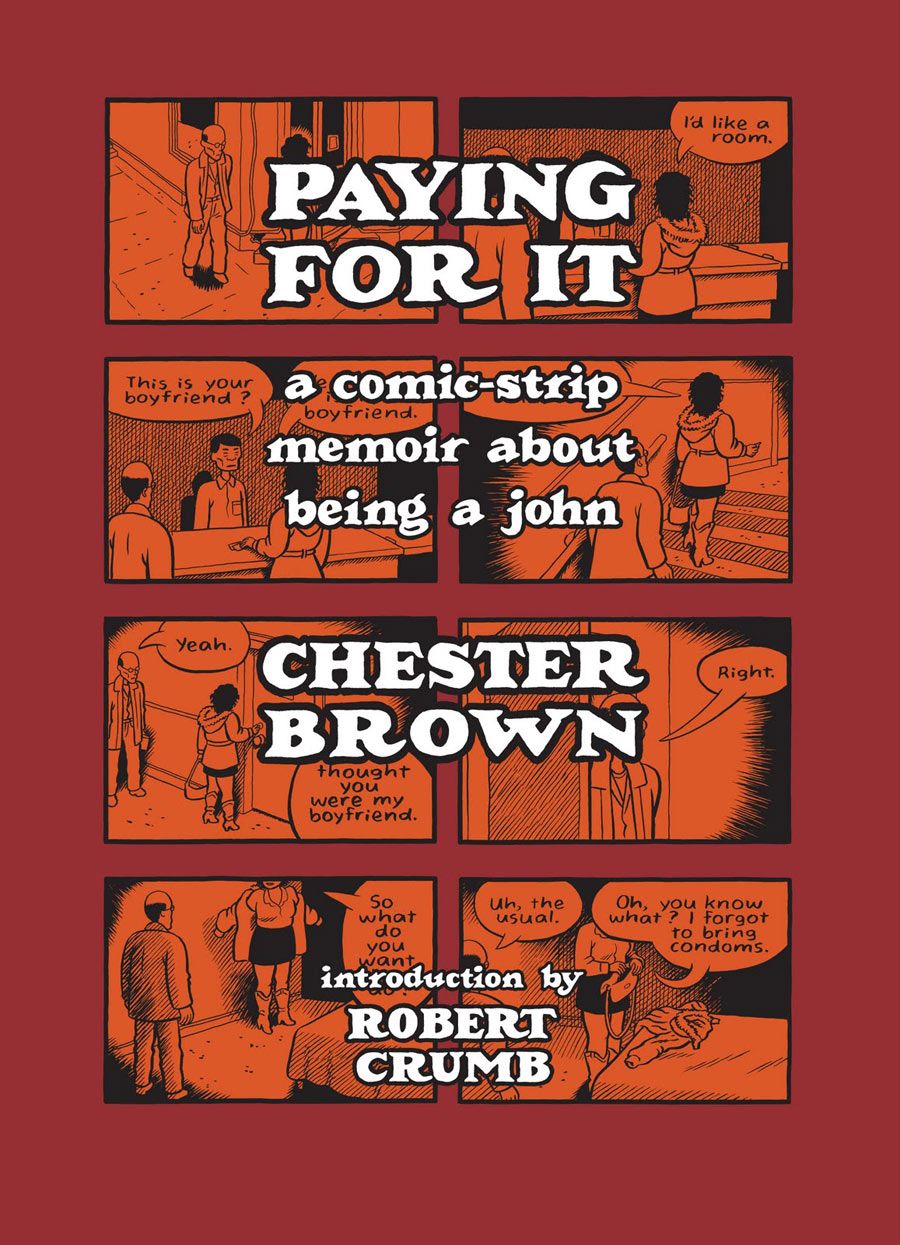One would think that a book called "Paying For It" that is in fact a memoir about a man's experience soliciting prostitutes, would be at least mildly titillating. Instead it's an insightful and fascinating look at love and sex that painstakingly examines philosophy and the very nature of romantic love itself.
The book, which chronicles Chester Brown's romantic life starting with the end of his relationship to his last girlfriend, Sook-yin, and then his experiences paying for sex with prostitutes, is absolutely riveting. What begins as a frightening adventure for him, one fraught with worry and insecurity, turns into a decade long relationship with the question of what romantic love really is. Brown's involvement with a series of prostitutes and escorts, and eventually a mutually exclusive relationship with one prostitute is a revealing, personal, and wildly gripping experience thanks to Brown's ability to be unflinchingly honest with himself on the page at all costs.
Brown's real life friends, cartoonists Seth and Joe Matt, make several appearances in the book, and function strangely enough as the heart and soul of the piece. Acting as reflections and sounding boards for Brown's bizarre journey, it is through them that we see so much of what Brown questions in himself. Seth functions here as an excellent foil to Brown's personal exploration, providing much needed counterpoints (which is not to say that Brown's opinions are wrong) asking questions and making observations, though without the specter of judgment (mostly). Joe Matt is the highly enjoyable comedic relief, giving hilarious voice to less rational but still significant counterpoints. Matt is particularly put out when he realizes that Brown has graduated from talking about having sex with a prostitute to actually having done so. Matt feels Brown has "cut in line" since Matt had previously been without sex the longest in the group and it was "his turn." The exchange in which Matt tries to explain how he's been screwed out of his turn and Brown's simple explanation of why that's not so (Brown has simply exited the "free sex line" and gotten into the "pay sex line" which "moves much faster"), is by far the funniest few pages in the book, and just one of many exchanges that shows where the real love is in this book, which is between Brown and his non-romantic relationships.
Brown ponders many deep questions in this excellent volume, from the meaning of romantic love, and where it originated from and what qualities make up a man's own self-worth, to the decriminalization and potential regulation of prostitution as a sociopolitical issue.
The art is bare and functional, with very small panels, and is even more simplified work than in some of Brown's other works, like "Louis Riel." It's a style that well fits his purpose here, and the stripped down nature of the art allows the reader to focus on the truly heady questions that Brown is asking of himself, rather than getting caught up in naughtiness, which would, quite frankly, derail the whole thing entirely. The sex is not supposed to be sexy, it's supposed to be honest and matter of fact, and it is just that in Brown's execution.
Great autobiographical and memoir work manages to transcend the narcissistic and mundane, finding ways to become intimate and relatable. Despite being a woman, having been in a romantic relationship most of my adult life, having never been to a prostitute (and not to mention not being a Canadian) I found myself engaged (and engulfed) by Brown's own questions to himself about romantic love, and the incompatibility of romantic love as a lasting and immutable thing. I pondered his questions intently, my own answers surprising me. It's only in the best work that we are inspired to turn important questions back onto ourselves to truly examine and learn from them, and "Paying For It" is exactly that kind of work.

